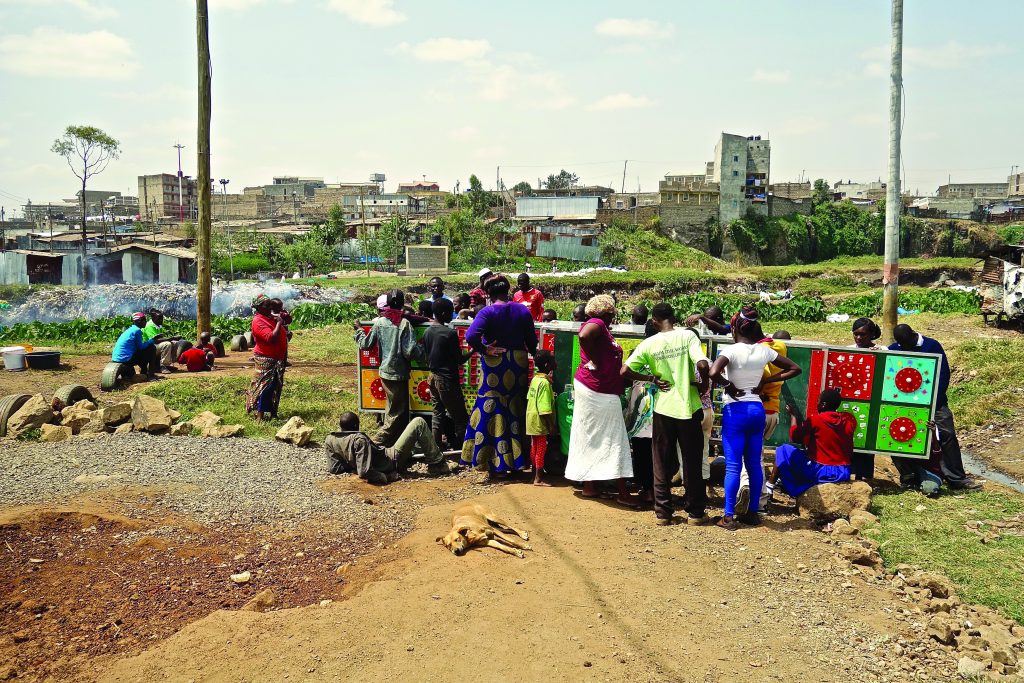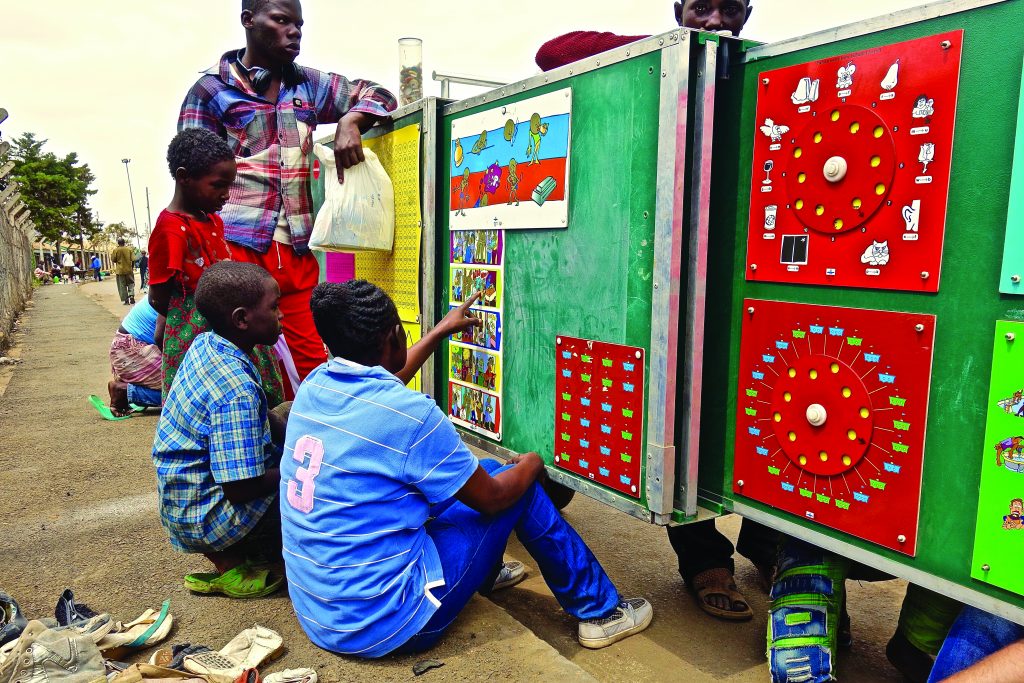Mobile School: An innovative approach to learning on, and from, the streets
Sander Degeling
Imagine you are 12 years old, living and working on the streets of a giant city. You are facing the unstable and constantly changing reality of the streets on a daily basis. To cope in this extremely challenging environment, it is vital to possess survival skills, such as having positive focus, agility, resilience, creativity, and competitiveness.
It is important that we recognise the capacities and talents of these young people, rather than only focusing on the harsh realities and resulting problems they face. For instance, in Antigua, Guatemala: Hudiel has learned to communicate in more than 12 languages by handing out leaflets for a pizzeria on the streets; and Luis faces constant violence from police officers, but is nevertheless earning a living by entertaining tourists and locals with his clown and circus acts. If you are able to deal with and adapt to the realities of life on the streets, you are not just a poor, needy or addicted street-connected child, but a creative and entrepreneurial survivor with lots of potential.

Blackboard on wheels
In order to highlight the positive capacities of street-connected children, the Belgian social enterprise StreetwiZe • Mobile School came up with the concept of a mobile school. The mobile school is an extendable six-metre-long, two-sided blackboard on wheels. It comes with more than 300 educational panels ranging from literacy to street business, to health and hygiene. It allows local organisations worldwide to unlock and discover the talents of street-connected children in their own environment. The educational panels are easily attached to the mobile blackboard with plastic screws before being taken to the streets for non-formal educational sessions, through which street educators interact creatively with street-connected children and youth.
By focusing on opportunities, rather than the problems children face on the streets, these mobile schools provide an open, accessible and recreational meeting place where children and young people are unconditionally accepted and appreciated. Through this positive approach, young people feel empowered, regain a positive self-esteem and self-image, and develop the tools to make conscious and sustainable decisions about their own futures.
A brief history
The mobile school was developed in the late 1990s by Arnoud Raskin, a Belgian product designer who was looking for a purposeful project for his thesis. After attending an information session by an organisation working with street-connected children in Colombia, Arnoud decided to travel to Colombia to see how he could develop a product for this target group. After working intensively on the streets of different Latin American countries, Arnoud noticed that there were few materials adapted for interactions with youngsters on the streets. The idea for the mobile school was therefore born, as a tool to broaden social impact and reinforce the efficiency of organisations’ outreach work.
Today, Mobile School has a continuously growing network of 46 partners in 24 countries across Latin America, Europe, Africa and Asia. These local partner organisations take their mobile schools to fixed intervention areas multiple times a week to meet street-connected children in their own environment.
How to get involved
The mobile school can be used by any organisation doing outreach work with street-connected children. Interested organisations can apply to become a Mobile School partner by submitting an application document and a video in which they explain with whom, where and why they want to use the mobile school. After a successful application, a first exploratory visit is organised to introduce the mobile school concept to the applicant’s staff. During this visit, Mobile School and the applicant identify potential locations for using the mobile school and align the vision of both organisations through basic street work workshops. Key topics such as the importance of empathy, self-esteem, play, and creativity are introduced, or reinforced, and discussed.
After the visit, a joint decision is made on whether the mobile school is the right solution to reinforce the outreach activities of the organisation. If there is a positive decision, all materials are adapted to the local context, such as using the dominant local language, and the mobile school is ready to be used. The partner organisation then receives two weeks of hands-on training and on-the-street-coaching to ensure the quality of their outreach interventions. Throughout the partnership, Mobile School stays in close contact with the local street educators and offers face-to-face training, support from a distance, and coaching and monitoring. All trainings and materials are offered for free although Mobile School remains the owner of the school and the panels during the first four years. In return, Mobile School asks partners to actively use the methodology and report back about the social impact of the outreach work on the streets.

A hybrid social enterprise
Producing mobile schools and offering street work training requires a lot of investment. In its early years, Mobile School was able to sustain its programmes through charitable donations from an individual donor. However in 2008, Mobile School decided to generate its own income and not be dependent on philanthrophy or government subsidies, so it created StreetwiZe. As a talent-development organisation, StreetwiZe offers workshops, training sessions and experience-based learning programmes to businesses in Belgium, all based on the capacities of the young people we meet with Mobile School on the streets. In the training programmes, the StreetwiZe crew shares stories from the inspiring survivors on the streets, allowing employees to reflect on and develop these ‘street skills’ which they will need in their daily business context.
The business clients pay for these learning programmes, and as a hybrid social enterprise 100% of the profits of StreetwiZe are reinvested in building more mobile schools to have more impact on street-connected children, resulting in a lasting impact both on the streets and on our business clients. By asking the question ‘what can managers and employees learn from street-connected children?’, StreetwiZe deliberately focuses on the talents and potential of people living on the streets. By using the learnings from the street, the company guides teams and individuals on how to deal with change in an economic context. So, even if you did not grow up as a street-connected child, you had better start thinking like one!
Sander Degeling is Partnership Coordinator Africa and Asia at Mobile School.
Contact: sander@mobileschool.org
